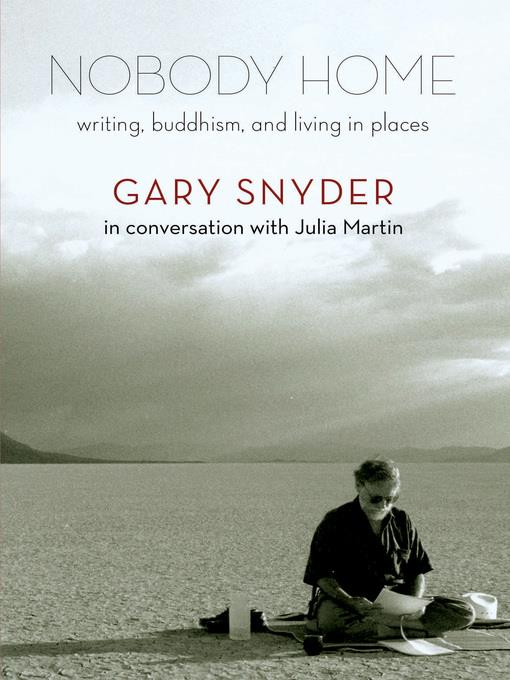
Nobody Home
Writing, Buddhism, and Living in Places
کتاب های مرتبط
- اطلاعات
- نقد و بررسی
- دیدگاه کاربران
نقد و بررسی

November 10, 2014
Thirty years ago Martin, then a South African graduate student, wrote award-winning poet, essayist, and environmental activist Snyder (No Nature). His gracious reply to her fearlessly detailed questions about his writing sparked a long-distance friendship: "It started as an intellectual exchange and became an exploration of practice," Martin, South African writer and literary scholar, explains. Transcripts of three conversations, the earliest in 1988, are followed by selected letters and emails written between 1983 and 2011. The opening dialogues take no prisoners: discussions of specific works are embedded in a dizzying array of ideas revealing Snyder's wide-ranging curiosity. Buddhist principles infuse his thoughts on ecological concerns, gender, women and nature, politics, wilderness, writing, long-term habitation, and much more. The sometimes poignant letters show the two writers trying to bring their knowledge to bear on inevitable changes and losses. Throughout, Snyder, who is now 84, generously gives wise advice about writing and life. While these conversations provide little orientation for the reader not familiar with Snyder's work, they reveal how a deeply humane thinker crosses boundaries to pose challenging questions, both practical and ultimate. His joy in ideas is contagious.

November 15, 2014
Snyder (Back on the Fire, 2007) has been a beacon to people everywhere as a much-honored poet, essayist, and environmental activist guided by his Buddhist practice. Martin is a South African writer who sent her first intelligently inquisitive letter to Snyder in 1983, when she was a graduate student in apartheid-shackled Cape Town, working on her thesis about his work. This launched a sustained, warm, and expansive three-decade correspondence punctuated by three in-person interviews. Gathered here, these exchanges form a dynamic and illuminating spiritual, moral, political, and literary dialogue and chart the growth of a strong friendship. Martin's astute questions inspire Snyder to discuss with bright zest, knowledge, thought, and feeling his place-conscious approach to Buddhism, how Buddhist ethics are intrinsically ecological, and how his poetry and activism are shaped by Zen teachings. As both lives unfold with joy and sorrow, their mutually inspiring discussion flows on, vibrant, searching, and aglow with compassion and gratitude. This engrossing collection grants us a new perspective on Snyder and his work and compellingly human insights into Buddhism, writing, and place.(Reprinted with permission of Booklist, copyright 2014, American Library Association.)

























دیدگاه کاربران